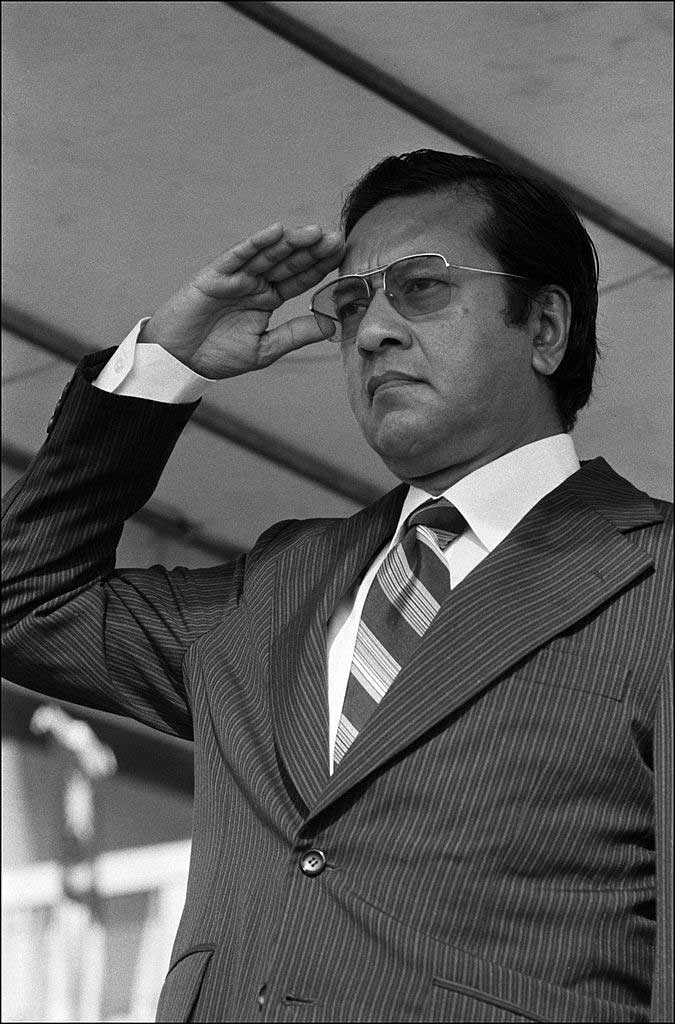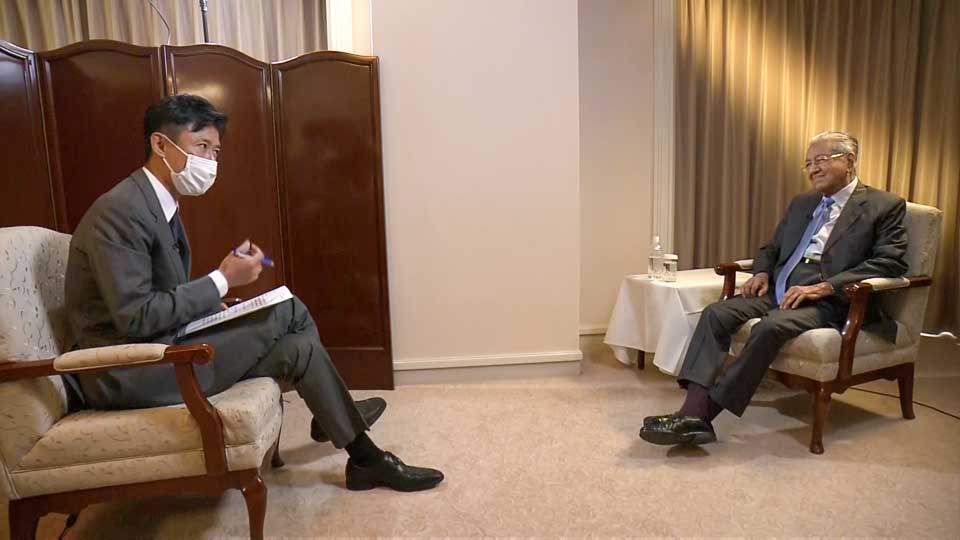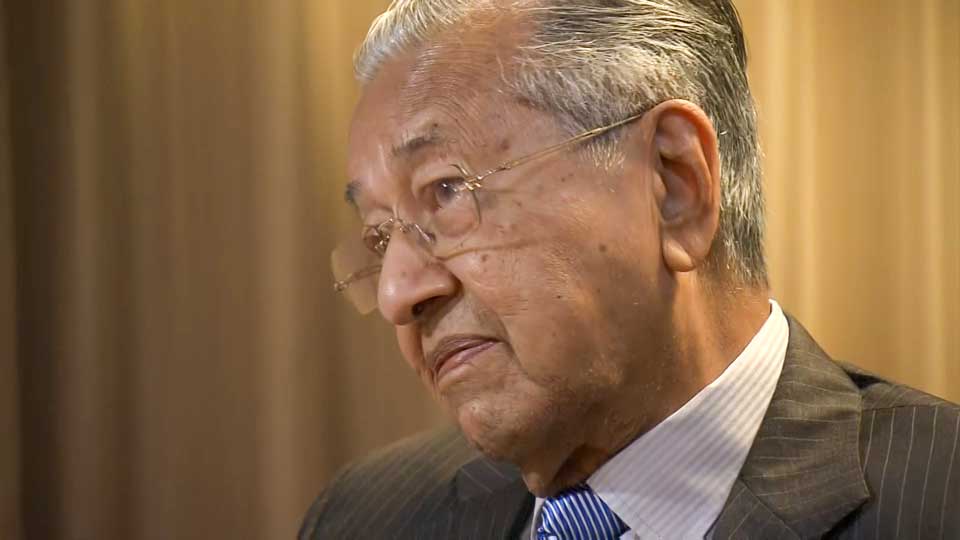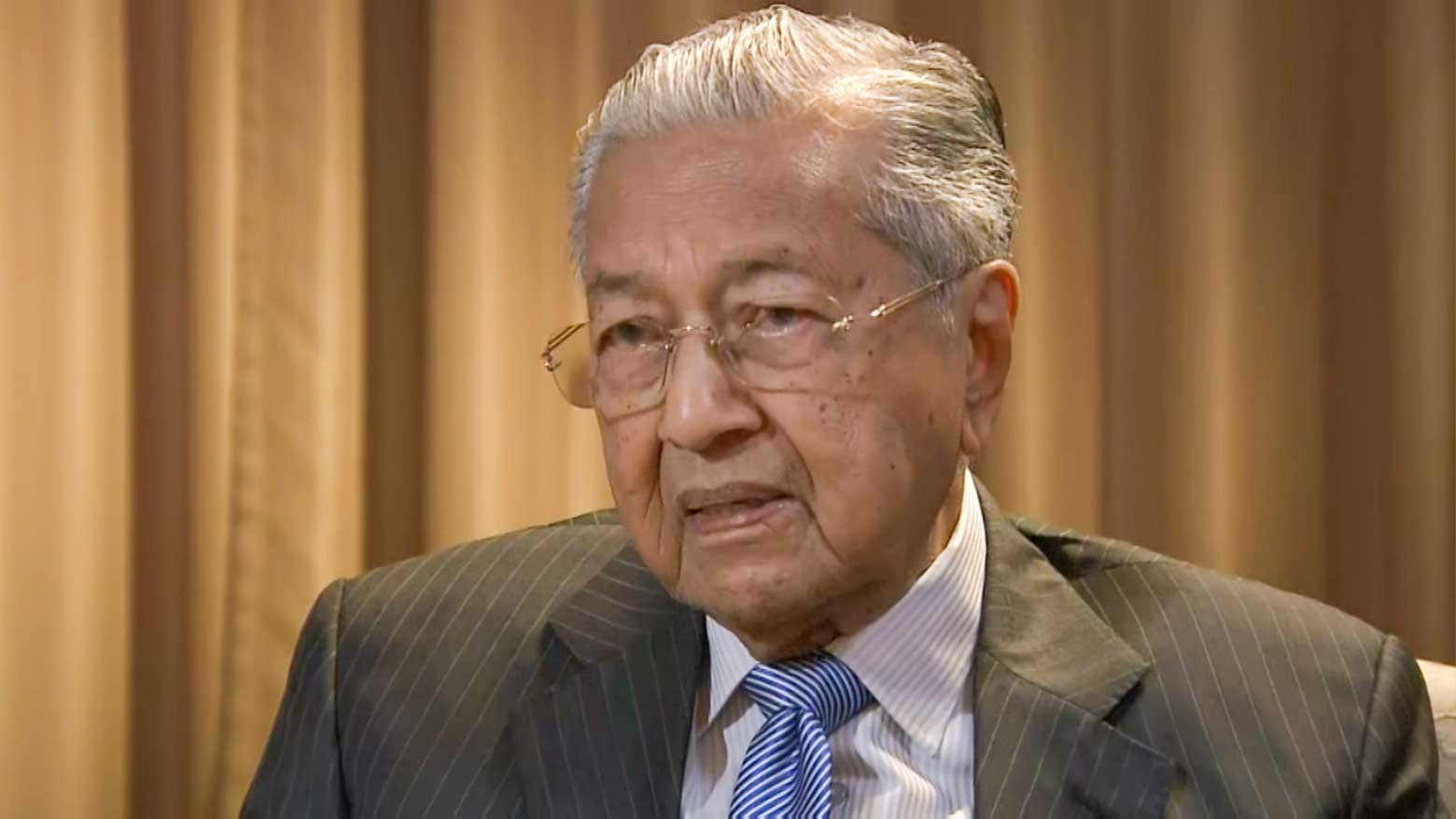Mahathir says the new US-led economic initiative for Asia known as the Indo-Pacific Economic Framework for Prosperity (IPEF) is more about pushing China away than bringing countries together. "This economy of grouping is not actually about the economy. It's meant to exclude and contest against China. It's very much political," he said.
Nevertheless, his own country is one of 14 to sign on to the IPEF since it launched in May. Others include Japan, India and South Korea.
The former Malaysian leader has been consistently wary about US-led trade deals in the Asia-Pacific region. Back in 2013, he expressed opposition to the Trans-Pacific Partnership or TPP, which was in the planning stages at that time.
His reasoning was that "less advanced Southeast Asian countries could be forced to accept the values of the US", even though the Malaysian government joined the trade pact.
While the US was initially part of the TPP, it pulled out during Donald Trump's presidency. On the IPEF initiative led by President Joe Biden's administration, Mahathir is blunt: "I don't think we should be part of that".

Mahathir has carefully managed his country's relationship with China. After a surprising return to office in 2018, Mahathir suspended a high-speed railway project linking the capital, Kuala Lumpur, with neighboring Singapore. Beijing was keen to win the lucrative construction contract.
"Why we withdrew was not (about) being anti-Chinese. It's just that it is not economically worthwhile. The previous government had borrowed a lot of money and had entered into agreements with companies from China. We need to conserve our finances because we need the money to pay our debts," explains Mahathir.
The former leader views Russia's invasion of Ukraine as a dire backwards step. "Unfortunately, now there seems to be a return to this old idea that when there is a conflict between nations, it could be resolved through war.
"This is very dangerous kind of thinking. I feel really sad that again we are committing the same mistake, trying to solve conflicts through war. A war will not solve a conflict. You will only destroy things.
"We don't need confrontation," says Mahathir, sounding a warning for Asia. "We find that the US seems to be keen to block China. And that means escalate and send warships into the South China Sea. One day, an accident may happen. And then of course, there will be violence, even wars. This is not good for the economic development of the ASEAN countries," he says.

Since the Russian invasion in Ukraine, countries in Asia have been looking closely at the security environment between the US and China. Mahathir worries the current approach from Washington may lead to escalation.
He is calling for dialogue to address China's ever-expanding military capabilities.
"We have to recognize that China is there. For Malaysia, for 1,000 years, we have dealt with China as a big power. We survived, even though we were weak and very small. So, it is better we talk to each other. At least when we are talking, we are not fighting."
His pragmatism extends to Myanmar where the military rules with an iron fist more than a year after a coup.
"You can apply sanctions, but it is going to hurt the people more than the leaders. You have to try and somehow establish contact with the leaders and make an offer that is more acceptable. We need to have some relaxation on this regime change idea. We may have to accept certain authoritarian governments."

Mahathir does not want smaller countries to get pushed around by superpowers. Nor does he want them to have to choose sides. He might not be in office any more, but he remains a force to be reckoned with in local and regional politics.

